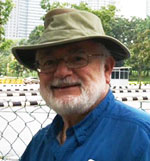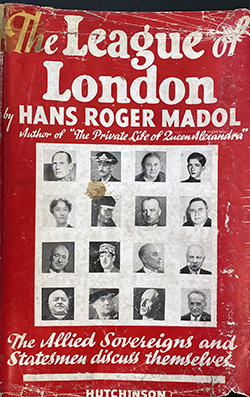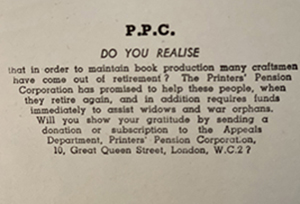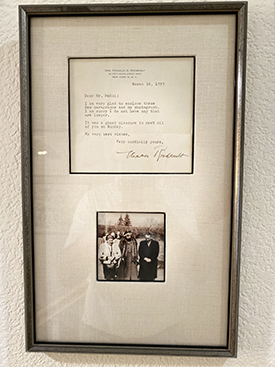Atlantic Crossing, PBS, Norwegian exiles and Hans Roger Madol.
By Oliver B. Pollak, Ph.D

RICHMOND, California – A friend recommended the eight-part PBS Masterpiece series Atlantic Crossing written and directed by Norwegian film maker Alexander Eik.
The series favors our human attraction to the cult of monarchy, divine right power, and personal flamboyance that has included King David, the Queens that gave us the Elizabethan and Victorian age, the Tsars, and the Japanese royal family, to name a few. The emergence of constitutional limited monarchy has preserved a few monarchies with atavistic figurehead roles.
Films about royals include the Hanoverians in The Madness of King George [III] (1994); The Queen (2006); The Tudors (2007-10); The Windsors (2016); The Crown (2016), and most recently Bridgerton (2020) have captivated audiences, earned money, and garnered awards, just as Downton Abbey (2010) on royalty’s edge did.
Gerhard Salomon, born in Berlin in 1903 was so enamored with royalty that he changed his name to Han Roger Madol thereby capturing the initials, HRM, His/Her Royal Majesty.
Jewish-born Madol fled Germany in 1933 for Denmark, Paris and then London. My English-born grandmother married to a German physician in Hannover, fled Germany in the mid-1930s and became Madol’s housekeeper in Richmond on the Thames River. She hosted Madol’s visitors, serving tea to statesmen, writers, librarians, book dealers and exiles from Naziism. I met “Elephant Uncle,” as I called him, in the late 1940s in England and in Los Angeles in the mid-1950s. Madol, a biographer, journalist, diplomat and publicist used his pen to influence public policy.
 Between 1930 and 1954 Madol published several royal biographies including Louis XVII, Ferdinand of Bulgaria, Christian IX, Queen Alexandra, Prince George of Greece and Denmark, and in 1934 Godoy, The First Dictator in Modern Times. But it is the League of London appearing in 1942 about kings, queens, prime ministers, presidents, foreign ministers and ambassadors, at their lowest ebb in exile in London that gives Atlantic Crossing a special cachet. In his Preface Madol wrote, “future historians may find some useful clues in this material to complete the story when archives and documents are available.”
Between 1930 and 1954 Madol published several royal biographies including Louis XVII, Ferdinand of Bulgaria, Christian IX, Queen Alexandra, Prince George of Greece and Denmark, and in 1934 Godoy, The First Dictator in Modern Times. But it is the League of London appearing in 1942 about kings, queens, prime ministers, presidents, foreign ministers and ambassadors, at their lowest ebb in exile in London that gives Atlantic Crossing a special cachet. In his Preface Madol wrote, “future historians may find some useful clues in this material to complete the story when archives and documents are available.”
Madol interviewed 56 men and three women, refugees and governments in exiles, from eight Nazi conquered and occupied countries, Grand Duchess Charlotte of Luxemburg, Queen Wilhelm of the Netherlands, and Queen Marie of Yugoslavia. Of course Prince Olav’s spouse, Norway’s Crown Princess Martha was not interviewed, she was living in the White House in the Roosevelt household.
Madol interviewed Norway’s King Haakon VII (1872-1957) and Crown Prince Olav (1903-91) who have much screen time in Atlantic Crossing. Also interviewed in London, but not depicted in the movie, were his Labor Party Prime Minister from 1935 to 1945 Johan Nygaardsvold and Labor Party Foreign Minister Trygve Lie who served as the first Secretary General of the United Nations, 1946-1952.
He first interviewed the King around 1935 in Oslo while working on the biography of Christian IX of Denmark. Haakon was related by birth and marriage to the royal families of Belgium, Denmark, England, Luxemburg and Sweden. Monarch, son, Prime and Foreign Ministers expressed their hopes for a rebuilt Europe exemplifying political stability and well-organized international cooperation and economic collaboration. Trygve Lie looking back to how the First World War ended said “common suffering this time will make co-operation lasting.” Madol worked for the Luxembourg government, advocated the rights of small monarchies, and edited the United Nations Yearbook.
 Fiction, historical novels, creative non-fiction, and professional history vary in reliability, credibility, credulity and interpretative cogency. Entertainment, drama and truth conflict. Film adds another imaginative and creative dimension as the director strains to keep the interest of the audience.
Fiction, historical novels, creative non-fiction, and professional history vary in reliability, credibility, credulity and interpretative cogency. Entertainment, drama and truth conflict. Film adds another imaginative and creative dimension as the director strains to keep the interest of the audience.

Madol’s older brother, Berthold Salomon (1898-1944) changed his name to Berthold Jacob. A WWI veteran who became an ardent pacifist. As a journalist he opposed Hitler’s 1930s militarization. He was on the Nazi’s most wanted list, arrested and released in response to international journalist protest. Berthold was on rescuer Varian Fry’s endangered Jewish cultural elite list. Madol unsuccessfully lobbied Parliament. Berthold was murdered in Berlin in 1944. Fry has been memorialized in a 2001 film Varian’s War, and in 2019 in The Flight Portfolio, A Novel by Julie Orringer. The imagination of film makers and novelists flesh out the narrative.
Atlantic Crossing is “inspired by true events.” The bombing of King Haakon’s parliamentary entourage and their escape to London in June 1940, as shown in the second episode, left Norway in the hands of the pro-Nazi Vidkun Quisling. Haakon and Olav returned to Norway in June 1945. Quisling was executed by firing squad.
Framed 1953 letter and photograph of Eleanor Roosevelt and Hans Roger Madol.
*
Oliver B. Pollak, a professor emeritus of history at the University of Nebraska Omaha, and a lawyer, is a correspondent now based in Richmond, California.